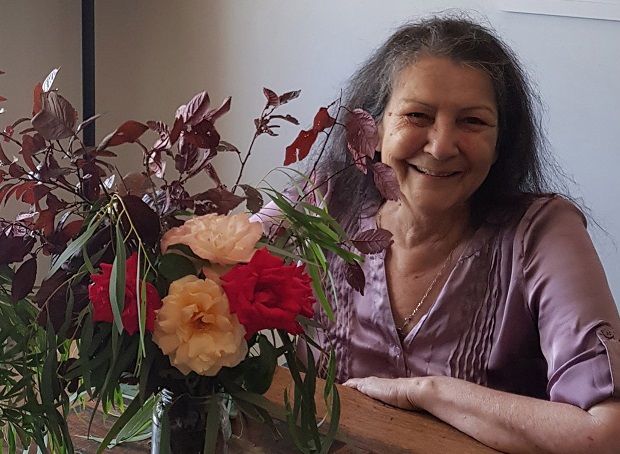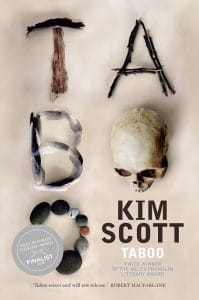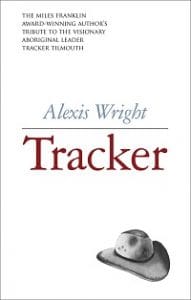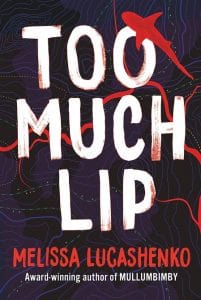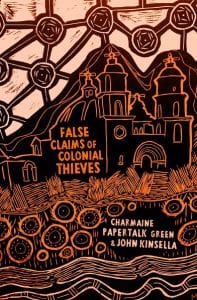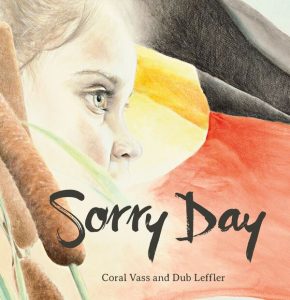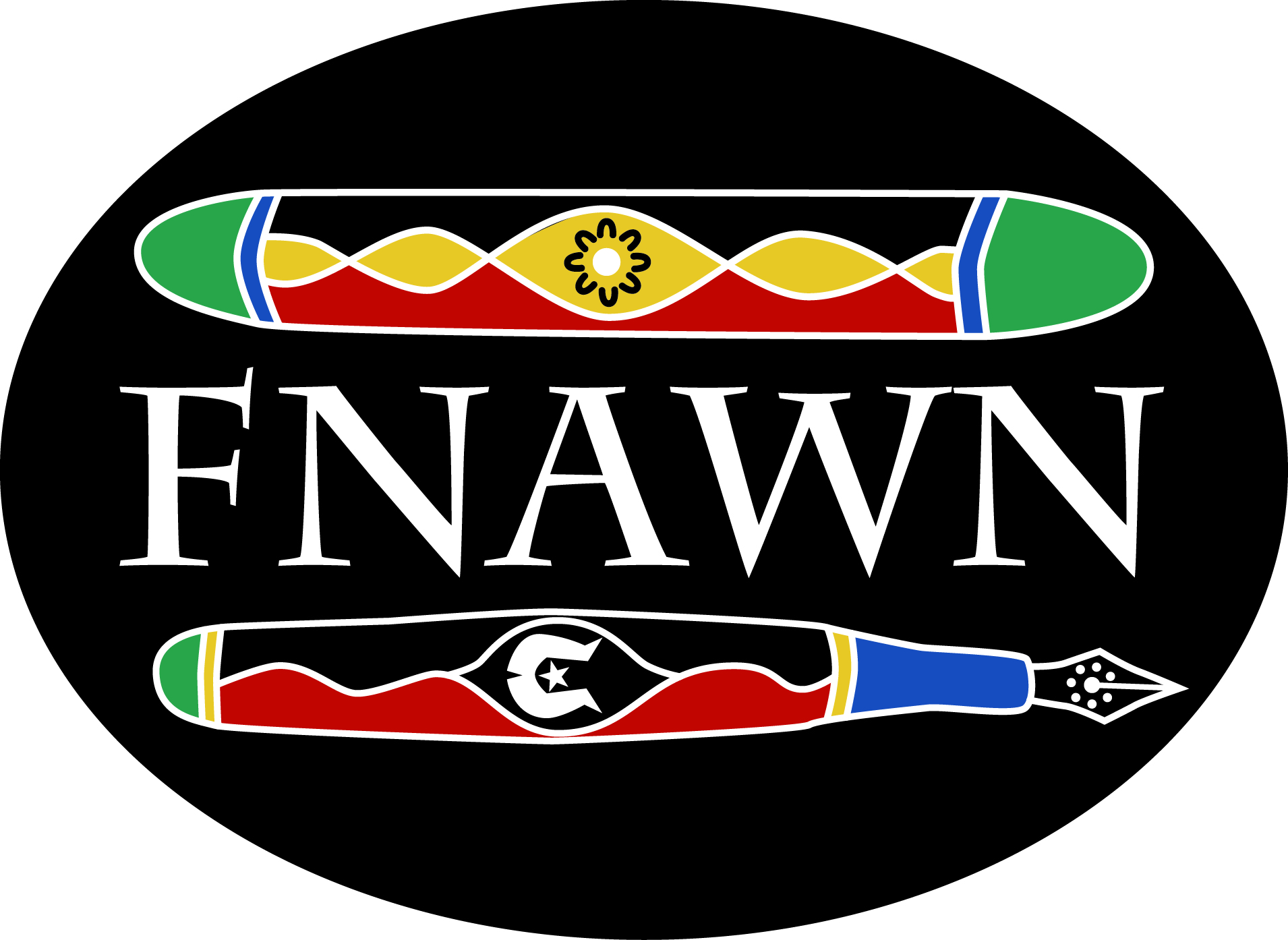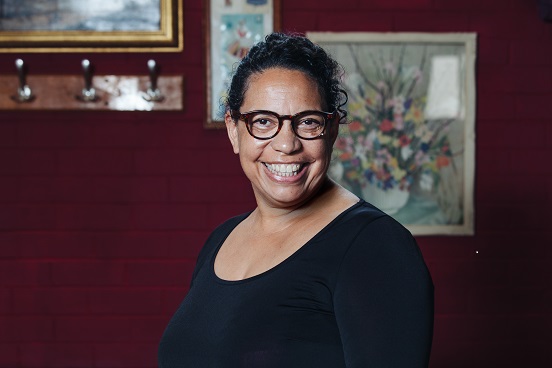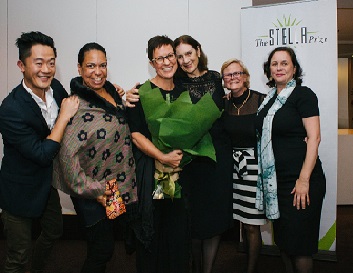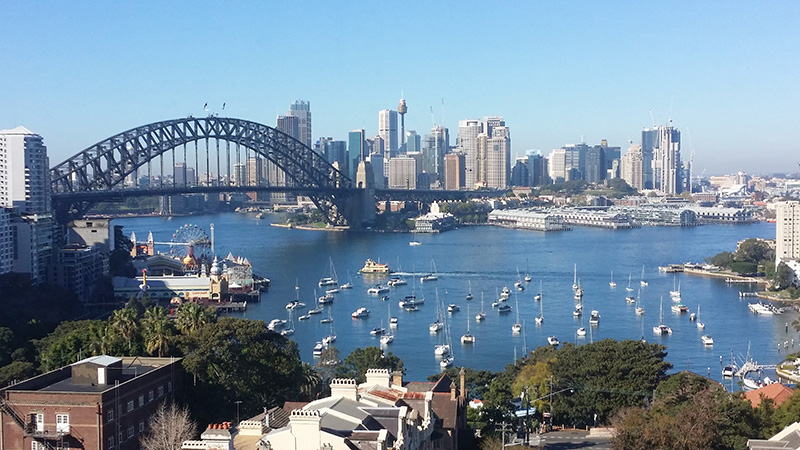Melissa Lucashenko
Edited version of the Keynote Address to the First Nations Australia Writers Network national workshop, Canberra, August 2018. First published in Meanjin Quarterly Summer 2018 issue. Reprinted with permission.
1. early 14c., ‘great, superior, supreme’, from Old French soverain ‘highest, supreme, chief’, from Vulgar Latin *superanus ‘chief, principal’ (source also of Spanish soberano, Italian soprano), from Latin super ‘over’
2. of remedies of medicines, ‘potent in high degree’
We talk about sovereignty a lot. We demand it be recognised and we have it on our T-shirts and so forth. But what is it really?
If you trace it back far enough you get to a Latin root, super, meaning ‘over’. So sovereignty in the English language really means being on top. Being the one with the power. ‘Highest, supreme or chief.’ Pretty easy concept. You look at the Queen of England and of Australia. She’s the one on all the coins. If we leave out old Grandfather Unaipon on the 50 dollar note, and Gwoya Jungarai on the two dollar coin, it’s not you or me on most of the currency—it’s Lizzie Windsor, corgi owner and world champion at being the recipient of stolen goods. The sovereign. Maybe in the legal sense it’s something different, but that’s where sovereignty comes from originally anyway, this idea of being on top.
It’s an interesting question. What goes on in someone’s head to make them think they are inherently better than someone else? And what does that kind of thinking do to the person? How did the rest of the Poms come to agree to this ridiculous idea? It’s a funny thing to think about for a blackfella, this idea that some person is inherently better than another person. It’s like someone jumping up and saying they’ve got two brains or something. Or that their blood is better than somebody else’s blood. Crazy.
Speaking of good and bad blood, there is also that famous story about the royal family and their treatment of the epileptic son of King George III. About them hiding the young Prince John away in the attic, frightened and ashamed of him for having a perceived weakness. The kid was severely epileptic and possibly autistic as well, and, so the story goes, he was hidden away from the world. Terrible. Fancy hiding your own family away, and on top of that parading around making out you are better than everybody else, too. ‘You can pick your friends but you can’t pick your family.’ Well apparently you can pick your family if you want to run the British Empire.
I think that story says something wider about the drive in modern Western cultures to be gammon. Because no human is intrinsically superior to anybody else of course—we are all simply products of our environments, and all human with the physical strengths and weaknesses that go with being human. And in order to be perceived as above every-body else in competitive societies requires pretending. That level of bullshit is inbuilt into hierarchical cultures, unlike classical Aboriginal culture, which is non-hierarchical except in respect to knowledge.
And this story of the hidden cousin also demonstrates the tendency in hierarchical cultures to hide away what’s perceived as shameful, or to project it onto others—other individuals, other nations. Blackfellas know all about that. This country’s done that to us for so long. The British called us primitive and savage when they came to our civilisations, our mostly peaceful continent, and then they made savage war and terror here. Came and kicked the heads off our little ones and said we were brutes. Stole our land holus bolus—and called us thieves. Raped our women and our kids on a mass scale, and called us violators. Built a convict colony that literally used rum as the currency, and went on to call us drunks and criminals. Freud would have a field day with this place. There’s enough material here for an entire conference. Of course those lies about the nature of classical Aboriginal society served a purpose then, just as they serve a purpose now, which is to distract. To take attention away from the big crimes: the genocide of a people and the theft of a continent.
Hitler’s minister of propaganda Goebbels said, ‘If you’re going to tell a lie, make it a big one.’ And that’s the basis of British sovereignty in this country. A very big lie. A very big false story about who we were, who we are and what happened here and is still happening here. The story of sovereignty for the British Crown. The story was edited a little bit in 1967, and in 1994 with the Mabo decision and later on with the Wik decision, but the fundamentals of the story really haven’t changed much. We didn’t deserve the continent, the story goes and the British, who did deserve it by virtue of military might, came and took it and it’s a done deal. That’s the story we hear over and over again, of British sovereignty.
So that’s what sovereignty is in London (and in the Australian constitution, I suppose), but what’s it mean for blackfellas? I’ve been reading Alexis Wright’s wonderful book Tracker, and in that book Tracker Tilmouth talks about his relationship with an old Central Desert law man. And that law man, Tracker’s kinship grandfather from memory, always used to go around telling his mob, ‘I’m your Government. I’m your President.’ He was a senior man who knew all about sovereignty, about being the Boss for his country. Tracker also talks about being educated a lot by an old lady called Bess, too, who knew all the women’s sacred stories for that country.
And I remembered, reading Tracker, that I’d seen footage in a film about rock art of an old man from northern Queensland I think, born in the colonial era, whose English name was Government. That was the main thing I remember from the film—that this old fella’s name was Government. Not in the facetious, racist way that some of our old people were named Hitler or Mussolini by the invaders, but in a real way, I think. A meaningful way. What I’m getting at is that although Aboriginal Law deliberately shares power out among individuals and groups, there is always a very clear sense of authority residing there at the heart. Sovereignty. Running our own affairs. Not ceding power to whitefellas. And a pride in doing so, a knowledge that we have that right.
I read a wonderful story on the Conversation the other day—well, only wonderful in some ways—written up by Liz Conor of two Noongah boys being taken to Europe by some missionary or another in the mid nineteenth century, and they are talking to the Italian priest who took them over there to prove that Aboriginal people could be made into good little white boys. They were in Paris, watching French Republicans battling in the street below them with the French authorities, and they asked the priest why he didn’t intervene to stop the violence. They even offered to help him do so. The priest said but it isn’t my country and I don’t know these people, and these brave and wise Aboriginal children said:
That doesn’t matter. You don’t belong to my country either, and you didn’t know the natives, but when they were getting ready to fight or had started, you went in among them, took their gidjis … and it was all over. Why don’t you do the same here?
And Conor reports that the priest wrote in his diary that he was left speechless, because they were right. There was no difference at all between the sovereignty and Law those young Noongah boys asserted and the sovereignty and law of the French people in their European capital.
So what’s writing got to do with all this? It’s complicated. One critical question is, how do we exert sovereignty as Aboriginal people in the modern era, through telling modern stories? We need to keep in mind that the sovereignty of Aboriginal Law comes from stories and songlines that can’t usually be told publicly, and aren’t even known by many of us. Some of us know them, and a lot of us don’t. I know a little bit, have been shown a few snippets here and there. So the first question becomes—if we don’t have those ancient structures in our community organisations, and we don’t enjoy those cultural privileges—the first question becomes one of asserting our sovereignty as modern Aboriginal people.
To talk in this way you need to believe that ordinary stories that aren’t old Law stories have power. And they most certainly do. The most powerful stories outside Law stories are the ones that hide inside our own heads and pretend they aren’t stories at all. We need to learn to distinguish better between fiction and reality; between, as my young niece Ellen van Neerven knows, honey and the names for honey.
It can be hard sometimes to reflect that the stories about us, told by Australia, are so harmful and so dangerous to us. But the other side of that coin is that only something very powerful can be so harmful, and if we can just hold the line, wrest back some control over the stories told about us, and replace them with our own, then we can exert power too. We can reshape the ideas of what it is to be Aboriginal.
We can exert power not only over the national story or the regional story, but also over the stories we tell each other around the kitchen table. The stories we tell ourselves about who we are as Aboriginal people, and what we are doing here, about who we can be and who we once were, about the great gifts of Aboriginal science and psychology and sociology that the world needs to face the challenges of climate change.
It’s an interesting question whether Australians will ever stop fantasising about us and deciding that it’s critically important to world history that they tell their stories about us, whom they dispossessed and murdered and now want to pity or exploit on the page. Some days you can only laugh. As Uncle Charlie Perkins once memorably said to some white ignoramus, ‘Mate, you know about as much about Aboriginal people as you do about flying backwards to the moon.’ Whenever I’m in despair I think about that strength he had just to confront people with their vast and damaging ignorance, and I laugh, and I keep on going.
So maybe one day whitefellas will stop writing rubbish about us and maybe they won’t. We must continue to insist that we are the sole owners of our own traditional stories and the authors of our own lives. And we must be vigilant about what we allow into our consciousness, and what we recognise as the Very Big Lie of colonisation.
I said when I published Mullumbimby back in 2015 that I wanted to write a story in which blackfellas had four things: Beauty, Power, Humour and Land. I think that if we have all those things and recognise that we have them, we are well positioned to start leading the Good Life. And although in my latest book, Too Much Lip, I look at some of the trauma arising directly from colonisation, and I paint a much less rosy picture of one black family, I still had in my mind that we should have those four elements: Beauty, Power, Humour and Land. Even in the midst of the trauma, we should have those things on the page, or be working towards them. That’s why I never kill off Black characters prematurely—the myth of the dying race is too strong, too powerful. We need to be alive on the page. We need to be fighting, and standing strong. We need to remember what allowed us to build the very first civilisation on this planet, our intelligence, our beauty and our pride in ourselves.
I’ve kind of drifted into a second question, which is, what is the writer’s job in these times? These times where the words ‘final solution’ and ‘White Australia policy’ can be uttered without shame in the Australian Parliament, and members of the Australian cabinet can shake the hand of the man who uttered them. Holding hands with a race-baiter and neofascist. These times when 100 per cent of the children locked in jail in the Northern Territory are black. Times when our widespread poverty and our political plight barely raise an eyebrow; because the story of the Aborigine as successful citizen, as a brilliant inventor or researcher or scientist or negotiator is not yet imagined, let alone widely known.
These are times when innocent refugees fleeing wars partly of Australia’s making are imprisoned offshore in contravention of international law, because there’s votes in it. Times when we really have to hang on to our Ancestors’ example, and remember the Ngarangaeta Baraks, the David Unaipons, the Uncle William Coopers and the Charlie Perkins and Tracker Tilmouths and Bowman Johnsons and Willy McKenzies and Oodgeroo Noonuccals and Aunty Essie Coffeys and the Mum Shirls and Maureen Watsons and Ysola Bests.
We need to remember Barak walking 60 miles into Naarm on a broken ankle to assert his leadership of the Wurundjeri nation. We need to keep in our minds Uncle William Cooper, the only private individual on the planet to protest the acts of German Nazis, including civilians, on Kristallnacht in 1938. Remember the way that our people came together in the 1970s, facing racist violence from the Queensland police at the Commonwealth Games protests in 1982, and the giant march of 1988 when tens of thousands including many white supporters rallied for recognition on Eora land. Remember how hard they did it, and how staunch our mob were, and draw strength from their strength.
What’s a writer to do? How do we transmit that strength to our readers and ourselves? Well there’s a number of ways. We can look to the greats of Black and Indigenous literature around the world. In my study at home I’ve got a number of objects that serve that purpose. One is a quote from the great revolutionary Black and queer writer James Baldwin, who said in the language of his times, ‘Freedom is not something that anyone can be given. Freedom is something you take, and every man is as free as he wants to be.’
I also have chalked on the wall in front of where I write something said by Murrawah Johnson, a young activist in Meanjin Brisbane, a spokeswoman for the Wangan and Jangilou people against the Adani mine. She was talking about the deep psychic and spiritual connections between us mob and our land, and the gendered impact of mining sacred country when she told a Brisbane meeting some time ago that ‘The womb is our first country.’
And there’s the music of Uncle Archie Roach, and of Uncle Kev Carmody and Uncle Roger Knox, which supports a lot of my writing and pondering and imagining. The poetry of Romaine Morton and Ali Cobby Eckermann, and sister Natalie Harkin and Uncle Tony Birch and many, many other First Nation poets. The wonderful writing of the First Nations of Turtle Island and Aotearoa. Too many to mention, many to draw upon for sustenance and to use as powerful medicine bundles in our hours of need.
I think back on my life of reading and there are three moments that stand out. (Well, there are lots that stand out, but I’m going to mention three …) I remember the first time I read a book as a child of about 13 and it mentioned the Brisbane suburb of Acacia Ridge, a place I had been to. And I realised at that moment with a physical shock—I can still remember the wonder of that feeling today—that books could be about the real world I lived in. They didn’t have to be about England or America, or some part of the Australian south where I’d never walked. Miraculously, books could be about my world, too.
I also remember being told about a novel called The Bone People in my early twenties. It’s by a Maori author, Keri Hulme, and I recall the chills that ran up and down my spine when I got past the first difficult and confusing pages into the heart of the story, and realised what artistry and wonder this First Nations writer had wrought. It’s a book about identity and belonging and trauma and country and disability and the dignity of the child. Hulme says in the front of the novel that she almost embalmed it in a block of amber, when she couldn’t find a publisher anywhere in New Zealand who would believe in the book or who could even understand it. Publishers said things like, ‘There is no doubt that Miss Hulme can write but unfortunately we don’t understand what she is writing about …’ Thank God she didn’t embalm her masterpiece, which went on, for what it’s worth, to win the Booker Prize for literature. How much poorer the world of writing would be without The Bone People. How much poorer our ideas of indigeneity and sovereignty would be.
And third, I remember watching Alexis Wright speaking at QUT in Meanjin Brisbane about a decade ago, and urging us with the grit and sincerity that are the constant hallmarks of her work, to cultivate the sovereignty of our minds. To ask what it is to be sovereign in our thinking as Aboriginal people. And feeling that shock of recognition once again: to be struck, again, that here is an idea that I needed to be introduced to. Here is an idea that feeds my soul. It’s related to, but different from, the urging of Bob Marley, who sang to Black people all over the world: emancipate yourself from mental slavery, none but ourselves can free our minds.
What is it, this sovereignty of the mind? How do we cultivate it, and what’s the point? I was watching a documentary on SBS On Demand recently, Putuparri and the Rainmakers. It’s about a man from the Kimberley, and about how he went bush with his elders, an old man called Spider and an old lady called Dolly. Spider was the boss for a sacred site called Kurtu. And it was six hours drive from Fitzroy Crossing, very remote, very inaccessible even in LandCruisers. I think it had been something like 40 years since the family had been back to their country. They had been forced away into the town, and they didn’t know if the site was still okay or not, if the power was alive in it.
The younger bloke was driving down this terrible, potholed road, and old Spider told him oh no, no, don’t go down this road, no. He had to go this way instead, cross-country where there was no road at all. And the young bloke was standing there with an axe and just oh, looking at all these saplings he’d have to chop out to go that way, and he was arguing with Spider. And Spider just stood and insisted that this hard, difficult track was the right track. He said: ‘I know this country. I been hunting all around this country for years when I was young.’
And I thought, well that’s it. That’s the sovereignty of the mind, to have confidence in your own knowledge and ability and direction after being away for 40 years and insisting that you be listened to on such matters. Because you are the one who knows. You are the expert on your life.
Our songman Uncle Kev Carmody knows it. He embodies it in his work and he sang it of Vincent Lingiari in the line ‘He knows where he stands, he stands in his Law’.
Historically we cared for all and everything in this place. The British invasion tried to destroy that philosophy of great and tender care. Tried to wipe the culture out. The result, which they pretend is something called civilisation, is in fact suffering, ours and theirs. Sometimes we forget that we are all connected in a giant, intricate web of belonging. We had the world wide web a long time before the internet was invented. We lived in it, we breathed and loved and birthed and died in a world wide web of connected life. We still do, it’s just that we are mostly unaware of this. Vulture capitalism relies on us being unaware of it, or ignoring it, or pretending it doesn’t matter when we mine sacred waterways and raise the water table, and emit the carbon that’s going to drown many of the world’s coastal cities and damage other life forms in the pursuit of short-term profits. It is the logic of capitalism and of so-called civilisation that we lock children up on Manus Island or in jails all over Australia, and pretend that we aren’t doing fundamental damage to our own society in the process.
So there’s a heavy responsibility on us as storytellers in this time not to beat around the bush. To talk straight about what matters, as sister Anita Heiss has urged us in her PhD thesis. And we can be poetic and we can be lyrical and we sure as hell need to be entertaining, because you catch more flies with honey than you do with vinegar. But we have to look first at what’s really going on. That’s the job of the artist—to try and see what others are refusing to see, and make it visible in a different way. Or as Tony Albert has it in his wonderful installation, ‘pay attention, motherfuckers’.
There is more scope today to tell our stories than there was when I was a child. Because of the Mabo decision, Australia has decided that it’s okay to have some Aboriginal people living around the place now, because they really believe, most of them, that the unfinished business of genocide and massacres and land and so on is settled. So some of our stories are now being listened to. Our activists have made sure with their centuries of great effort that we can now turn on the TV and have NITV there with black voices and black faces. And some of our stories are reaching the mainstream and reaching the classrooms and lounge rooms of the nation. These are not gains to be sneezed at, and we need to remember to congratulate ourselves for making this change. We need to celebrate how far we have managed to climb, uphill, bearing the heavy loads of racism and low expectations. We should be cheering each other on every single day—Every Secret Thing! YES! The Sapphires! YES. Dark Emu! YES. The Gods of Wheat Street! YES! Calypso Summer! YES! Redfern Now! YES! Terra Nullius YES! Taboo YES! Broken Teeth! YES. Mystery Road! YES. Tiddas! YES!
And the stories of the stolen generations are being heard now, too. These often aren’t sexy stories. They aren’t normally the yarns of painted up warriors or smiling sports-people that Australia craves. These are our stories of surviving genocide, of coming back from the brink, and they need to be told and they need to be heard. It’s critically important, too, though, that our stolen-gen stories don’t come to overshadow the stories of those who remained. We must, and I include myself in this category, we must be sure not to return to the fold of Black Australia writing at the expense of those who remained on country and kept on going. We all have trauma as First Nations people. It’s not as if only half of us were invaded, only the stolen and displaced mob, or only those who stayed on country—we all were.
We have all been colonised, we all have damaged country and damaged spirits, and we must engage together in the work of decolonisation. For mob who never left country, who have struggled all their lives with the dangers as well as the privileges of growing up Black, I urge you to keep an open mind about what was done to those who were removed or displaced, and taught to hate or even fear their own people. Raised in shame, as the song says. I urge you not to compound that shame with lateral violence. And for my fellow Murries, Goories, Koories, Nungas, Noongahs, Bama and Yolngu, who have been separated from our mobs and our countries, let us always be very careful about whom we try to speak for, and how.
Let us not become a new class of oppressor, jumping in to talk when others more connected to country have not yet been heard. Let’s be mindful that there are proper ways of speaking, and acting, as blackfellas, and to never please the white man at the expense of our own mobs, no matter how strong the temptation might be. Not that that temptation is only limited to stolen or removed mob, of course. Anybody, from any situation, can allow themselves to be seduced by power. If we stick to the tenets of our old people, though, we will walk a straight path. And displaced mob need to be mindful of those tenets.
I spoke at the beginning about the white ideas of sovereignty, about the Queen of England, and of being on top. Sister Ali Cobby Eckerman writes metaphorically in her brilliant poem ‘Circles and Square’ about the square imposed by white Australia, which sits within her and ‘stops her in her entirety’. It’s a beautiful poem, and an important one. As I read this poem regularly, I remember that our diverse Aboriginal cultures are all built on philosophies of the whole, of the circle Ali speaks of. That we grow and learn as First Nations on this fragile round planet and we grow and learn by orbiting from Dreaming track to Dreaming track, from family home to family home, from Black Elder to Black Elder. From black heart to black heart, on our journey through this Indigenous life, which for many is a journey back to Aboriginality that has been stolen or taken or denied.
And I think about the way some of our stolen mob still can’t find their way home, and the heartbreak that means for every single individual, and the loss each of those people represents to our nations. And I think, too, about the British royal family. I sit and wonder about them hiding that epileptic cousin away in the attic for decades, ashamed and cold-hearted and cruel, and I think, I hope we never become that disconnected from our humanity. Let’s rejoice in the wholeness of our families, and be careful to focus on what we have in common as First People, not what has been created to divide us from one another. Let’s practise what our Law tells us, and let’s keep going with the project we have as Black writers—to pay attention to what’s going on, to talk straight about our lives, and to remember to celebrate our beauty, our humour, our power, and most of all our land. •
Melissa Lucashenko is a multi-award-winning Bundjalung novelist from Brisbane. She is a Walkley Award winner for her nonfiction writing and a founding member of human rights group Sisters Inside.
